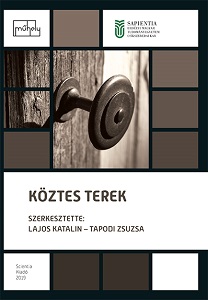
We kindly inform you that, as long as the subject affiliation of our 300.000+ articles is in progress, you might get unsufficient or no results on your third level or second level search. In this case, please broaden your search criteria.



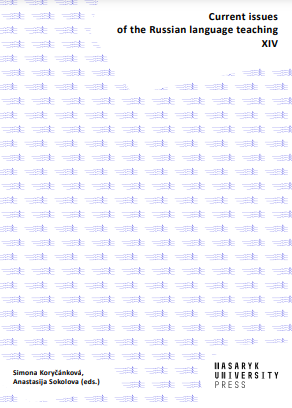
The paper is devoted to the language game in teaching Russian as a foreign language. The research aims to examine the phenomenon of the language game in journalistic text and show its effective implementation in the study processes. Language games are considered at different language levels (word-formation, graphics, paremiology and etc.). The article analyzes the definitions of the examined phenomenon and its main functions in journalistic text.
More...
The author of the article aims to introduce Russian poetic texts into the teaching of Czech students on B1 level. The chosen teaching methodology is based on motivating the students with the use of Czech symbolist poetry by O. Březina and a subsequent analysis of a poem by V. S. Solovyov. Work with the poetry of both authors focuses on perceptual lexicon, which plays key role in uncovering the meaning of a symbolist text. Students can thus gain knowledge of polysemous words and their different author’s connotations in an enticing and creative way. This enhances not only their knowledge of the content and language, but also of the aesthetic component related to the main function of an artistic text.
More...
In this work I will focus on using the most common digital technologies in Russian language teaching. Special attention will be paid to the applications and BOYD principle in Czech schools and also to the most popular applications for mobile platforms. All these applications can be used in distance learning in primary and secondary schools, even in teaching Russian as a foreign language.
More...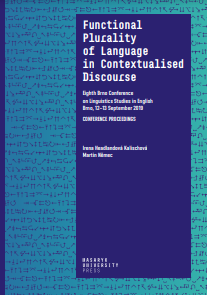
This paper aims to analyse the use of evaluative adjectival lexicogrammatical patterns in selected British online newspaper discourse in terms of genre specification. It focuses both on the normalised frequency of the patterns as well as on the evaluative semantic groups of the adjectives embedded in the patterns analysed. The genres chosen for the analysis are politics and crime. 282 articles from six national British online newspapers (the Sun, the Mirror, the Express, the Guardian, the Telegraph, and the Independent) were downloaded to create the corpus. These were then analysed via Sketch Engine for the evaluative adjectival patterns introduced by Bednarek (2009). The adjectives found in the patterns were further examined and manually divided into semantic groups introduced by Collins COBUILD. The data were then compared in an attempt to identify discourse patterns and contrasts, and valuable insights were gained into the lexicogrammatical features studied. The analysis indicated that evaluative adjectival patterns are indeed embedded in newspaper stories and both the tabloids and the broadsheets employ these patterns more or less equally for the same genres. Both types of newspaper mainly embed patterns ‘v-link ADJ’ and ‘v-link ADJ prep’ in both genres. However, when broadsheets report on politics, the use of the ‘it v-link ADJ finite/non-finite’ pattern, can be considered marked.
More...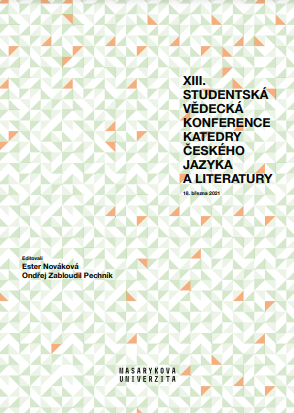
V příspěvku se na základě diplomové práce seznámíme s alternativními výukovými metodami ve výuce českého jazyka a literatury na střední škole. Nejprve se zaměříme na téma a cíl příspěvku, krátce si popíšeme program RWCT, třífázový model myšlení a učení E-U-R a definujeme kritické myšlení spolu se stručným přehledem možných metod, které lze ve výuce užívat. Stěžejní část příspěvku bude věnována modelovým hodinám, na nichž prakticky ukážeme práci s alternativními metodami.
More...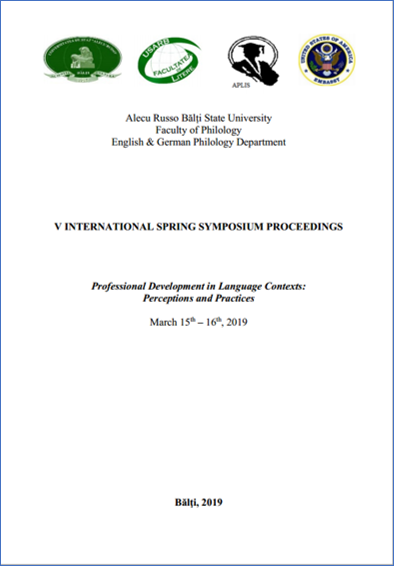
The article deals with the forms of assessment, recommended by New Methodology Curriculum designed within the joint project of Ministry of Education and Science of Ukraine and British Council Ukraine ‘New Generation School Teacher’. The new approaches to training future English language teachers suggests changes not only in the content of Methodology course, but also in approaches to teaching, that are intended to promote high levels of interaction and student involvement in their own learning processes. These consequently implies the alteration of traditional forms of assessment aimed at checking theoretical knowledge of the discipline rather than practical skills needed for the profession of a teacher. So, assessment tasks are designed to reinforce learning throughout the programme. Each module has specified outcomes, assessed by a combination of stand-alone assignments and portfolios including two or more assignments. Final assessment is based on school practice as well as in-course assignments and qualification paper defence.
More...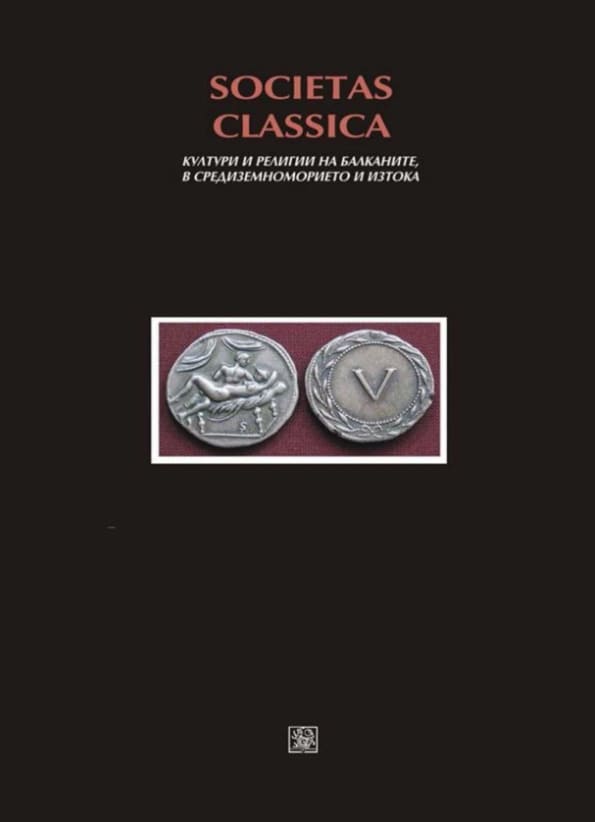
In this paper is presented the word “havra” from semantic point of view – its meanings, matchability, use, as well as the origin of the word “havra“ in Bulgarian, Greek and Russian with fair relevance in the examined three languages.
More...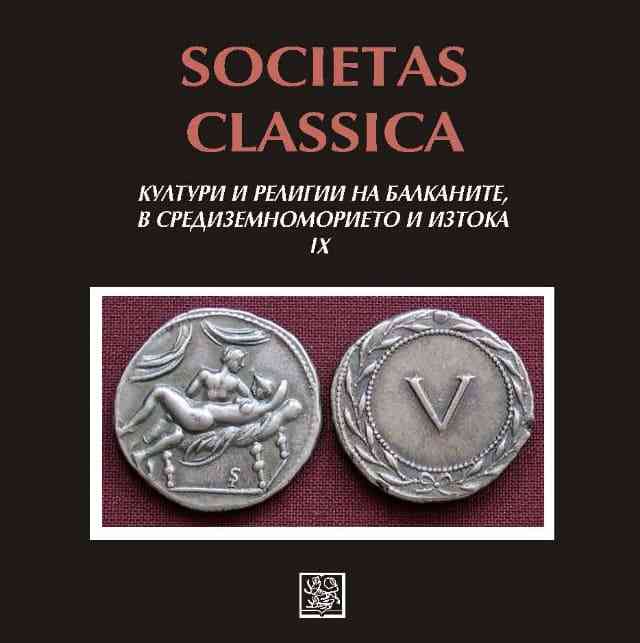
As designated as signs for second nomination, through its internal form the phraseological units are characterized with their feature to carry more enlarged knowledge and help to make more explicit the peculiarities of its world perception in comparison to the signs of first nomination. The present paper is an attempt the semantic aspect of the phraseological units of the semantic field of the concept „bread” to be analyzed and in particular the phraseological units of the model „wealth-poverty”, which belongs to the same semantic field. It is emphasized the central position of the bread in the linguistic consciousness of Bulgarians, Russians and Greeks, as well as its fundamental role in the culture of these three nations.
More...

Greek loanwords in Bulgarian constitute a significant share of the total number of foreign words in it. In some Bulgarian dialects the number of Greek words, in comparison with other foreign lexemes, is larger owing to the proximity of these vernaculars to those of Greek, and also due to the historical and cultural processes transpiring in Bulgarian lands in the past. In a considerable number of Greek words that have entered the Rhodopi vernaculars semantic changes have occurred. There also are loan words that have preserved the central meaning they have in the source language. Depending on the semantic characteristics of Greek loan words in the Rhodopi vernaculars, three main groups can be differentiated: a) words where no change in meaning has occurred, b) words that have acquired new meaning, and c) new words that are derivatives of lexemes from the former two groups. The study also traces penetration routes of Greek words in the Rhodopi vernaculars. The frequency of use of loan words is analysed in a diachronic aspect.
More...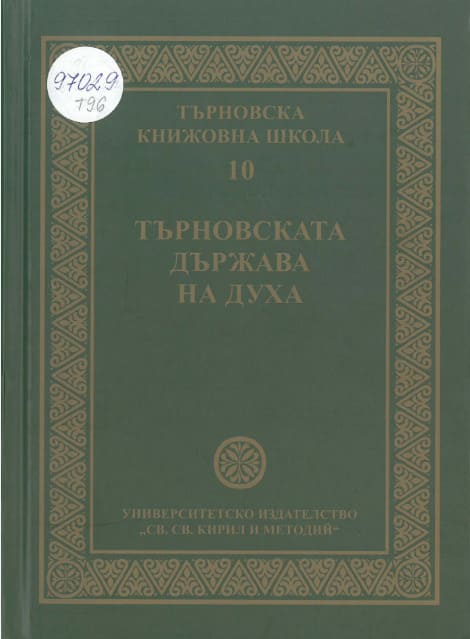
An abridged version of the Slavonic Scaliger Patericon is shown to be copied both from Cyrillic and Glagolitic antigraphs; the same circumstance is observed in the translations of the Scete Patericon and Athanasius of Alexandria’s Homilies Against the Arians. Twofold transmission makes it possible to contrast the features of copying from Glagolitic with those of copying from Cyrillic.
More...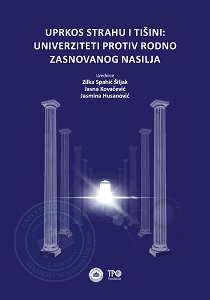
U ovom radu problematizirat će se feministička lingvistika kao novo polje istraživanja u našem kontekstu, unutar kojeg se otvara pitanje na koji način su ženski rod odnosno žene vidljive u jeziku. O rodno osjetljivom jeziku počelo se polemizirati 70-ih godina 20. stoljeća u Sjedinjenim Američkim Državama i Europi, pa potom globalno. Danas je rodno osjetljiv jezik postao društvena realnost jer u jeziku imamo mnogo primjera u kojima je potvrđena i dokazana diskriminacija žena u odnosu na muškarce. U Bosni i Hercegovini postoje tri službena jezika (bosanski, hrvatski i srpski). U svakom od navedenih prisutna je kategorija gramatičkoga roda u određenim vrstama riječi, kakve su imenice, zamjenice, pridjevi, glagolski oblici, tako da nije moguća upotreba nijedne imenice bez oznake gramatičkoga roda. Upotreba rodno osjetljivog jezika podrazumijeva da u jeziku postoje muški, ženski i srednji rod. Međutim, je li navedena praksa dovoljno zastupljena u svakodnevnom govoru, pisanom i usmenom izražavanju? Koliko je prisutna upotreba rodno senzitivnog jezika u tiskanim medijima? Da bismo na ova pitanja mogli dati adekvatan odgovor, proveden je sedmodnevni monitoring Dnevnog avaza, najtiražnije tiskovine u Bosni i Hercegovini. Analizom tekstova utvrđeno je da rodno osjetljiv jezik još nije prioritet u izražavanju ženske uloge, zanimanja, njenog doprinosa i njenih pogrešaka u društvu. Sedmodnevnom analizom uočeno je da je upotreba rodno osjetljivog jezika u Dnevnom avazu diskriminatorna. Polazna pretpostavka ovoga rada jest da se žene posredstvom jezika sustavno diskriminiraju, a da bi se ženu moglo i u pisanom i govornom jeziku početi tretirati ravnopravnom, promjena je nužna.
More...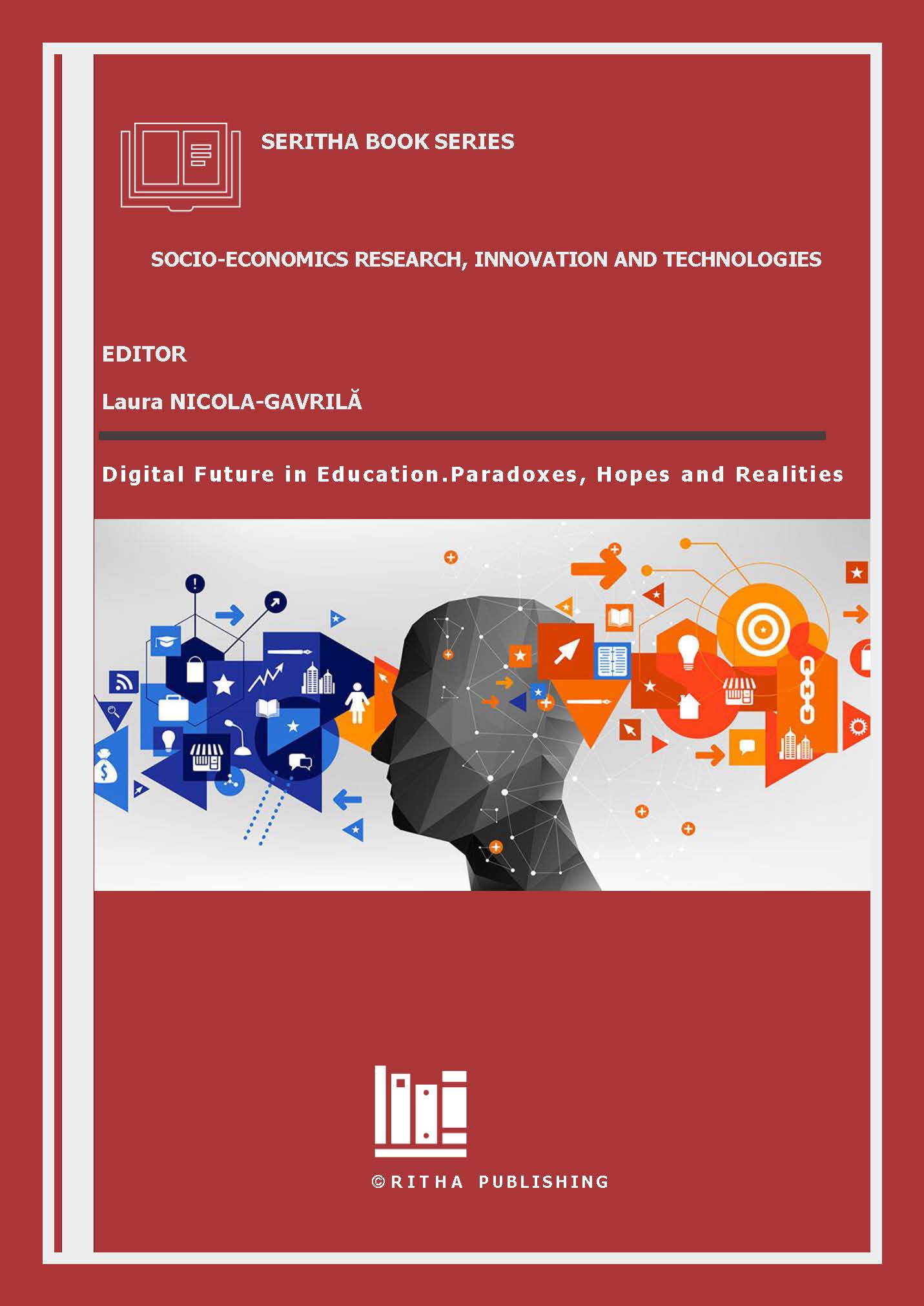
In an era of global connectivity, language and literature education faces the challenge of navigating multilingualism, cultural diversity, and technological advancements. This paper explores the challenges and opportunities in language and literature education in the era of global connectivity. Through a qualitative research approach, interviews, focus group discussions, and classroom observations were conducted with 30 Arts and Sciences students and teachers. The findings reveal significant themes related to cultural diversity, multilingualism, and the integration of technology in language learning. The study emphasizes the importance of inclusive pedagogies, critical thinking development, and the incorporation of authentic and diverse literary works. Recommendations are provided for educators and policymakers to promote intercultural understanding and enhance language and literature education. The limitations of the study suggest areas for future research, including long-term language proficiency and diverse contextual considerations. Overall, this paper calls for ongoing innovation and collaboration to meet the evolving needs of language and literature education in an interconnected world.
More...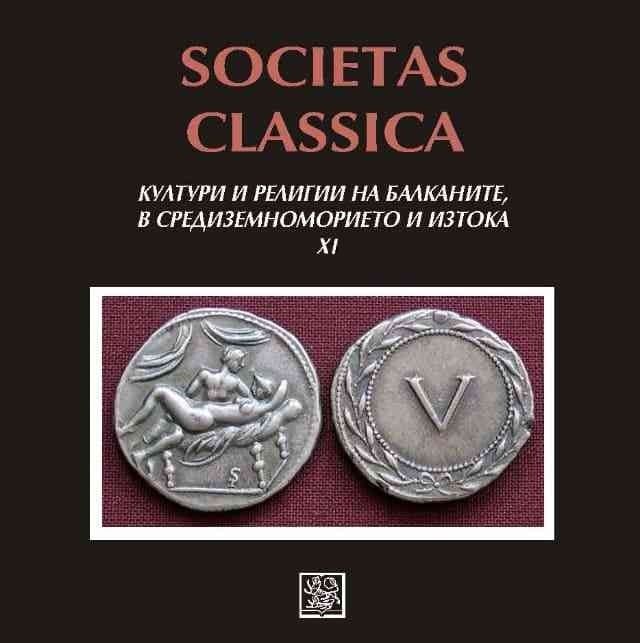
The anthroponymy deals with the existing or already obsolete proper names of people, as well as with their geographical distribution in a given country or region. Anthroponymy studies anthroponyms, which include personal, patronymic, surnames, as well as generic names and nicknames. The anthroponymic system of any language is constantly changing, just as the language itself is constantly evolving. Although there are not a few purely Bulgarian personal names that managed to be preserved through Christianity and its rituals, many personal names of Greek origin entered the Bulgarian anthroponymic system, which began to replace the old pagan names
More...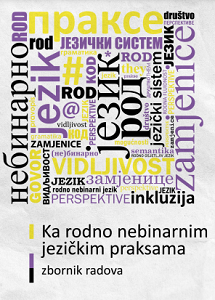
Zbornik radova Ka rodno nebinarnim jezičkim praksama rezultat je izlaganja na istoimenoj konferenci održanoj 22. 9. 2023. u Sarajevu, u organizaci Sarajevskog otvorenog centra. Zbornik sadrži: Predgovor (str. 2), koji je napisao jedan od urednika Zbornika – Matej Vrebac; Uvodni tekst: “Ka rodno nebinarnim jezičkim praksama” (str. 3–5), kojim nam se obraća Amar Bašić, također član Uredničkog tima; Prvi dio – Nevidljivost u jeziku (str. 7–15), koji čine tri rada, tri lične priče i intimne ispovedi: “Kako i zašto moramo inkluzivni_e u vrlo binarnom BHS jeziku” – Alex B; “Ko sam ja? Nevidljivost u jeziku znači nepostojanje” – Admir Alex Adilović; “Moje iskustvo sa jezikom kao bezrodna osoba u Bosni i Hercegovini” – Mušinović E.; Drugi dio – Lingvističke mogućnosti (str. 16–53), koji čine četiri rada lingvističke perspektive: “Od rodno (ne)osjetljivog ka rodno neutralnom (nebinarnom) jeziku u lingvističkoj bosnistici” – Amela Šehović; “Semantika imenica srednjeg roda u bosanskom jeziku” – Zenaida Karavdić; “Nomen est omen? – (Re)interpretaca rodnih označitelja kroz leće kognitivne lingvistike” – Emir Muhić; “Uporaba rodno nebinarnog jezika: (ne)mogućnosti u praksi” – Ivan Šunjić; Treći dio – Primjeri iz prakse, (str. 55–87), koji čine tri rada: “Perspektive rodno neutralnog jezika u Bosni i Hercegovini” – Amar Bašić; “Problemi pri prevođenju rodno neutralnog jezika sa njemačkog na bosanski/hrvatski/srpski jezik” – Džana Zahirović; “Kratki prikaz pisanja o temama vezanim za nebinarne osobe u Bosni i Hercegovini” – Jasmina Čaušević; Recenze (str. 89-92); O Sarajevskom otvorenom centru (str. 93).
More...
Zbornik Ka rodno nebinarnim jezičkim praksama nastao je na osnovu radova izloženih na istoimenoj konferenci održanoj u Sarajevu 22. 9. 2023. godine. Prvi ovakve vrste na području Bosne i Hercegovine, zbornik je okupio radove kojima se pokreće iznimno važna akademska i aktivistička rasprava o rodno nebinarnim i rodno neutralnim jezičkim praksama. Uz predgovor i uvodni tekst, zbornik sadrži radove, njih ukupno deset, podeljene u tri cjeline: Nevidljivost u jeziku, Lingvističke mogućnosti i Jezik u upotrebi.
More...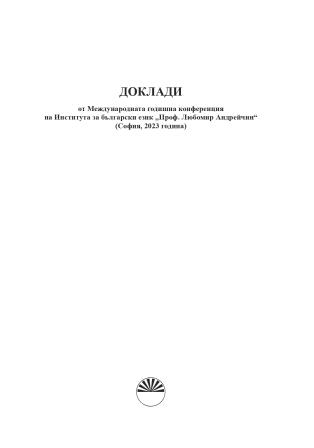
When studying Bulgarian as a foreign language, the main goal is to develop two types of skills: receptive and productive. The article describes some models and exercises for building and improving receptive skills (reading and listening) applied in the work with foreign students. The types of exercises that can be derived are: recognizing language elements; searching and analyzing information; transformation; production (of words, sentences, texts).
More...